A new McuOnEclipse components release was long overdue, so I’m pleased to announce that a new drop is available with the following major changes:
- Segger SystemView library with kernel time reporting
- GenericTimeDate supports different hardware RTC devices
- Utility with little endian packet handling functions
- Shell Standard I/O handlers for USB CDC, Segger RTT and Bluetooth
- FreeRTOS and stack size reporting
- printf() support in Shell component
- Various small bug fixes and improvements
Segger SystemView
The Segger SystemView library has been updated to the new V2.x version. I have added kernel time reporting which was reported with the port to FreeRTOS 9.0.0. Now SystemView reports properly the time spent in the kernel with black bars:
FreeRTOS and SVCall on Cortex-M0+
The Cortex-M0+ port does not need the SVCall interrupt handler, see ARM Cortex-M Interrupts and FreeRTOS: Part 3. It is still provided, but it is not added to the vector table on Cortex-M0+ any more.
USB CDC Device Subclass
The FSL_USB_CDC component has now a setting to specify the USB device subclass:
This allows to load the USB driver on Windows 10 automatically without a .inf, see https://msdn.microsoft.com/en-us/library/windows/hardware/dn707976(v=vs.85):
“If you want to load Usbser.sys automatically, set the class code to 02 and subclass code to 02 in the Device Descriptor.”
Thanks to Barry for that tip and wish to add that setting!
GenericTimeDate with Hardware RTC Support
The generic RTC module so far supported only a software RTC. Now both an internal and an external hardware RTC can be used. It supports both LDD, non-LDD and external (e.g. I2C) RTC devices. Two optional init parameters allow selective initialization of the software RTC from the hardware RTC. That way both the software and hardware RTC can be kept easily in sync at system startup time:
If using it with an internal RTC LDD component, make sure that the component initialize the handle and does a ‘soft’ init (that way the hardware RTC time is kept):
The API has been extended with several new functions:
The command line supports bot the software and hardware RTC functions and reports the time and date:
The above extensions now make it easy to use an RTC e.g. for a data logger application.
Utility
The Utility module implements more functions to pack/unpack little endian data:
Shell Standard I/O Handlers
To make it easier to have multiple Shell connections, the Segger RTT, USB CDC and Bluetooth components implement a standard I/O handler structure plus a local buffer for input handling. That structure can be used for command line and Shell redirection. Below is the implementation for the Segger RTT:
/* default standard I/O struct */
CLS1_ConstStdIOType RTT1_stdio = {
(CLS1_StdIO_In_FctType)RTT1_StdIOReadChar, /* stdin */
(CLS1_StdIO_OutErr_FctType)RTT1_StdIOSendChar, /* stdout */
(CLS1_StdIO_OutErr_FctType)RTT1_StdIOSendChar, /* stderr */
RTT1_StdIOKeyPressed /* if input is not empty */
};
uint8_t RTT1_DefaultShellBuffer[CLS1_DEFAULT_SHELL_BUFFER_SIZE]; /* default buffer which can be used by the application */
FreeRTOS and Kernel Awareness
The FreeRTOS V9.0.0 source base has been extended to support an optional stack end marker which is turned on by default:
This configures the configRECORD_STACK_HIGH_ADDRESS macro in FreeRTOS.h. With this turned on, the Eclipse FreeRTOS Kernel Awareness V1.0.1 (see “FreeRTOS Kernel Awareness for Eclipse from NXP“) is able to properly report the stack size:
Using the command line Shell in FreeRTOS, a more accurate report can be produced with the ‘tasklist’ command:
CMD> FRTOS1 tasklist TCB Static Handle Name State Prio Stack Beg Stack End Size Stack Top Unused Runtime 1 no (0) 0x20000A18 Shell Running (1,1) 0x20000A08 0x200004C0 1360 B 0x20000968 ( 164 B) 776 B 0x00000001 ( <1%) 4 no (0) 0x200019B8 IDLE Ready (0,0) 0x200019A8 0x20001780 560 B 0x20001950 ( 92 B) 476 B 0x00001AD1 (100%) 3 no (0) 0x200015E8 LedFrame Blocked (1,1) 0x200015D8 0x200013B0 560 B 0x20001550 ( 140 B) 164 B 0x0000000F ( <1%) 5 no (0) 0x20001C80 Tmr Svc Blocked (2,2) 0x20001C70 0x20001A20 600 B 0x20001BF8 ( 124 B) 308 B 0x00000000 ( <1%) 2 no (0) 0x20001348 RNet Blocked (0,0) 0x20001338 0x20001110 560 B 0x200012C0 ( 124 B) 228 B 0x00000001 ( <1%)
Printf() in Shell
Hm, yes, I’m not a fan of printf() (see “Why I don’t like printf()“). But there are good alternatives (see “XFormat, a Lightweight printf() and sprintf() Alternative“). Because that version is handy, I have added support for it to the Shell component:
As a result, the Shell component references the XFormat component, so existing projects have to be updated with a simple one-click.
Summary
I hope this updates and features are useful for you. Changes are documented on GitHub. The release is available on SourceForge: https://sourceforge.net/projects/mcuoneclipse/files/PEx%20Components/
See “McuOnEclipse Releases on SourceForge” how to install the update. For more details see the commit logs on GitHub and the release notes on SourceForge.
Happy Updating


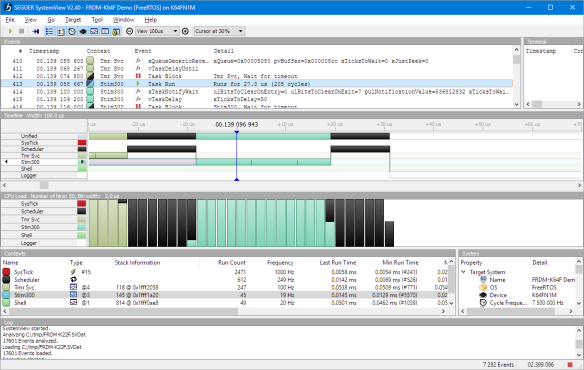
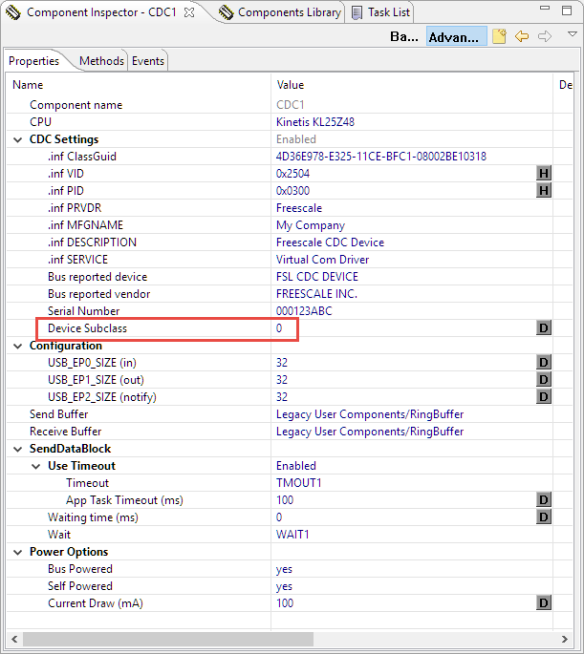
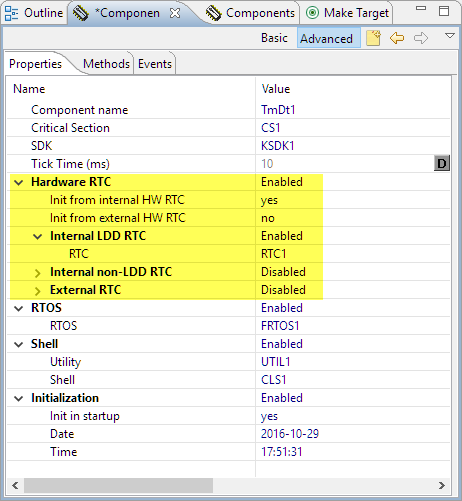
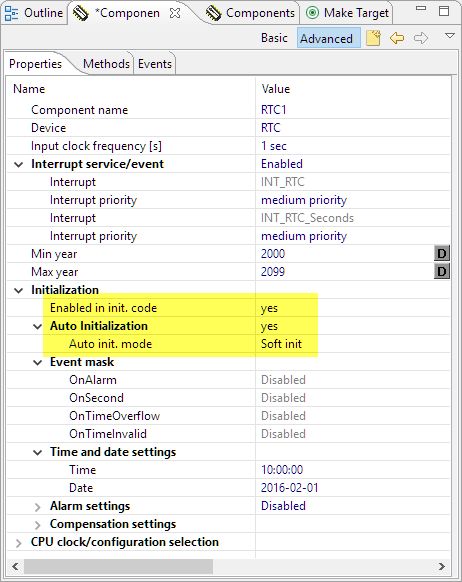
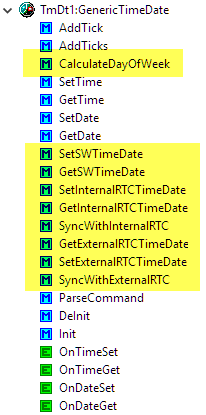




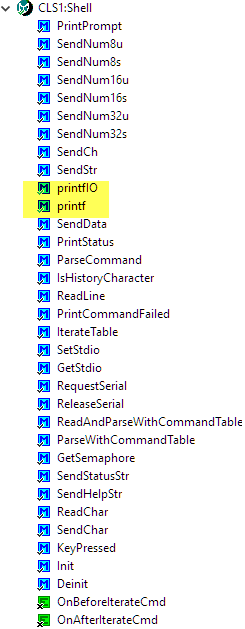
Hi Erich,
great component update, especially support of internal hardware RTC is very usefull for me. If the FRDM boards would have a battery holder for buffering the RTC it would be perfect.
Thanks Michael
LikeLike